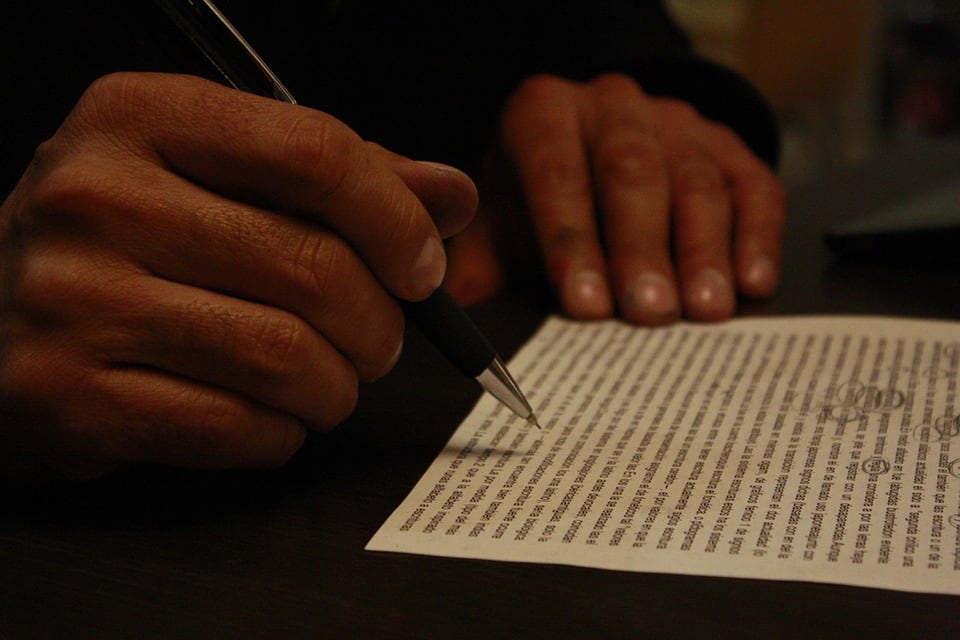Are you scouring the internet asking everyone from Reddit to Google ‘how to write better?’
Most of us have probably done it if we’ve ever aspired to be a writer at any level.
We’re stuck for inspiration, the blank page is melting our brains with its white-hot intensity, and our fingers are cramped from hours hovering at the ready over the keyboard, so we turn to trusty Google and type in, “Inspirational Quotes on Writing” (or something similar).
As you scroll down the page, you see endless examples of wisdom from the trenches of professional writing from those who’ve famously fought in them and emerged victoriously.
Many are humorous, all are well (or uniquely) phrased, inspiration oozes from each and every one of them until you’re literally punching the air with new-found enthusiasm for your craft. As you hurry back to your blank canvass, your mind is swimming with the promise of what may spring from the keyboard and onto the page.
And then you’re frozen once again by the icy white brightness of the screen.
What do all of those wonderful quotes mean? And how do they apply to me?
Tip 1 – Allen Ginsberg
“To gain your own voice, you have to forget about having it heard.”
—Allen Ginsberg
One of the deadliest traps fallen into by beginning writers, or even those who’ve been at it for a while, is the act of giving any thought whatsoever to your audience as you write, or think about writing, or glance briefly at a blank page or computer screen, or sharpen a pencil for any reason whatsoever.
Don’t do it. The audience is an evil succubus.
The audience will drain your writing of any true creativity or original voice each and every time you pause to consider whether anyone will ever want to actually read this.
Good writing is necessarily an intrinsically selfish pursuit. Unless you’re writing something that appeals to you, in a voice that you find engaging, with a plot and characters that fire your imagination, what’s the point of writing at all?
OK, yes. There’s money.
And it’s true that sometimes you have to buck up and simply get something on the page for a paying client who wants to appeal to a particular audience. We’ll speak of this later.
Related Read: How To Write An Academic Essay?
But even under these circumstances, don’t sell your soul completely. Think of client guidelines as the framework or jungle gym on which you’ve been allowed to play. And then play. Your way. If your writing bores you, it’s likely to bore everybody. To the greatest extent possible, always write for an audience of one.
Yourself.
Tip 2 – Samuel Johnson
“The greatest part of a writer’s time is spent in reading, in order to write; a man will turn over half a library to make one book.”
—Samuel Johnson
Writing may be a necessarily solitary pursuit, but it cannot exist in a vacuum. Writing is a ravenous beast. And, if you’re lucky, it will invade your brain, reach down through your heart, and take residence in your fingertips to carry out its bidding. But it’s a beast that must be fed.
If you want to be a writer, you must first be a reader. Read for inspiration. Read for pleasure. Read for the information that can then inform every detail of your work.
If you’re just starting out, you’ll no doubt find yourself copying the style of those whom you admire, and that’s alright. It’s all a part of the endless process of finding your own voice.
If ever you find that your writing is becoming forced or uninspired, stop and ask yourself when you last read someone else’s work.
The Beast must be fed. And it just might turn on you if it isn’t.
Tip 3 – Stephen King
“When your story is ready for rewrite, cut it to the bone. Get rid of every ounce of excess fat. This is going to hurt; revising a story down to the bare essentials is always a little like murdering children, but it must be done.”
—Stephen King
Anton Chekhov said, “My own experience is that once a story has been written, one has to cross out the beginning and the end. It is there that we authors do most of our lying.”
Hunter S. Thompson said “Not a wasted word. This has been a main point to my literary thinking all my life.”
You could probably find a similar quote from almost any other writer who’s ever put pen to paper, and while it may be self-explanatory, it’s worth repeating because it is such painful yet necessary advice to follow.
The best writing contains no fat. No unnecessary frills. No humorous backstory that doesn’t directly impact or move your story forward. But there’s no shortcut. You have to write the fat version first.
Writing is like sculpting, only writers must create their own block of granite before they can chip away all the unnecessary bits.
Join the Immerse Education 2025 Essay Competition
Follow the instructions to write and submit your best essay for a chance to be awarded a 100% scholarship.

Tip 4 – Elmore Leonard
“If it sounds like writing, I rewrite it. Or, if proper usage gets in the way, it may have to go. I can’t allow what we learned in English composition to disrupt the sound and rhythm of the narrative.”
—Elmore Leonard
As we’ve mentioned before, rules were meant to be broken. And nowhere is this more true than in writing. The trick is knowing which rules to break and when. A good piece of writing is very much like a piece of music.
It has its own sound and its own rhythm, and sometimes those pesky rules from our school days just get in the way.
Some examples of this include rules for division into paragraphs, sentence fragments, punctuation, and more. Sometimes a paragraph needs to end before the rules say it should.
Sometimes a sentence – or even a paragraph – needs to be only one word long to create the rhythm that your story needs. Perhaps your protagonist feels the need to speak for an entire page with no punctuation at all.
Yes, rules were meant to be broken, but another adage also holds true: You must learn them before you start breaking them. Otherwise, you may as well be one of those monkeys trying to randomly type the complete works of Shakespeare.
Tip 5 – Virginia Woolf
“Every secret of a writer’s soul, every experience of his life, every quality of his mind, is written large in his works.”
—Virginia Woolf
If you want to be a writer – a good one, at least – you must be prepared to be exposed. Completely and utterly exposed. Those who’ve never written or those just starting out can easily assume that the trick of great fiction is all in the imagination. It isn’t.
Certainly one can say that what they write is purely imaginary, and that it has nothing to do with themselves or their lives, but the facts are, a) this is never true, and b) if it is true the writing is rubbish.
Of course Tolkien or Rowlings have no personal experience with hobbits, ents, witchcraft, or dragons (we assume), but you can be sure that the details of their stories; the characters, the relationships, the loves, the friendships, the betrayals largely have their seeds in some past experience of the author.
This is not to say, of course, that each character corresponds precisely with a specific person in the author’s life, in fact that’s quite rarely the case, but there are pieces of ourselves and everyone we know in everything we write.
We’re often advised to “write what you know,” and this is the most basic application of that advice. If you want the people of your stories and their relationships to ring true in any way, you simply must draw from your own experiences.
It can be painful or it can be cathartic or it can be both. If your friends or family recognize themselves in your writing, it can even be quite awkward. But it must be done.
If you’re not willing to do it, you’ve chosen the wrong line of work.
Tip 6 – George Orwell
“Writing a book is a horrible, exhausting struggle, like a long bout of some painful illness. One would never undertake such a thing if one were not driven on by some demon whom one can neither resist nor understand.”
—George Orwell
This is the monster of which we spoke earlier. The one you’ll be purposely feeding if you continue on your path to being a writer. And it is a journey, not a destination.
Ernest Hemingway said, “We are all apprentices in a craft where no one ever becomes a master.”
And it’s true. We can learn and we can grow and we can become those who are quoted in articles like this one, but we never stop learning. We can never stop feeding the beast. And the writing never really gets any easier.
A young aspiring actor once asked a more experienced actor for tips on “making it in the business.” The older actor looked him over and said, “The first thing you have to do is to ask if there’s anything else you can imagine yourself doing with your life.
Is there anything else that you could choose as a profession that you would enjoy doing as a profession?”
The young actor considered for a moment and said, “Well, I quite enjoy maths,” he said.
“Then do that,” said the actor.
The same could be said about writing.
One final quote, and one of my personal favourites, is attributed to many authors in one form or another. I attribute it to Dorothy Parker who said long ago:
“I hate writing. I love having written.”
Writing isn’t easy. But the rewards are great. Now get out there and feed that beast.


























